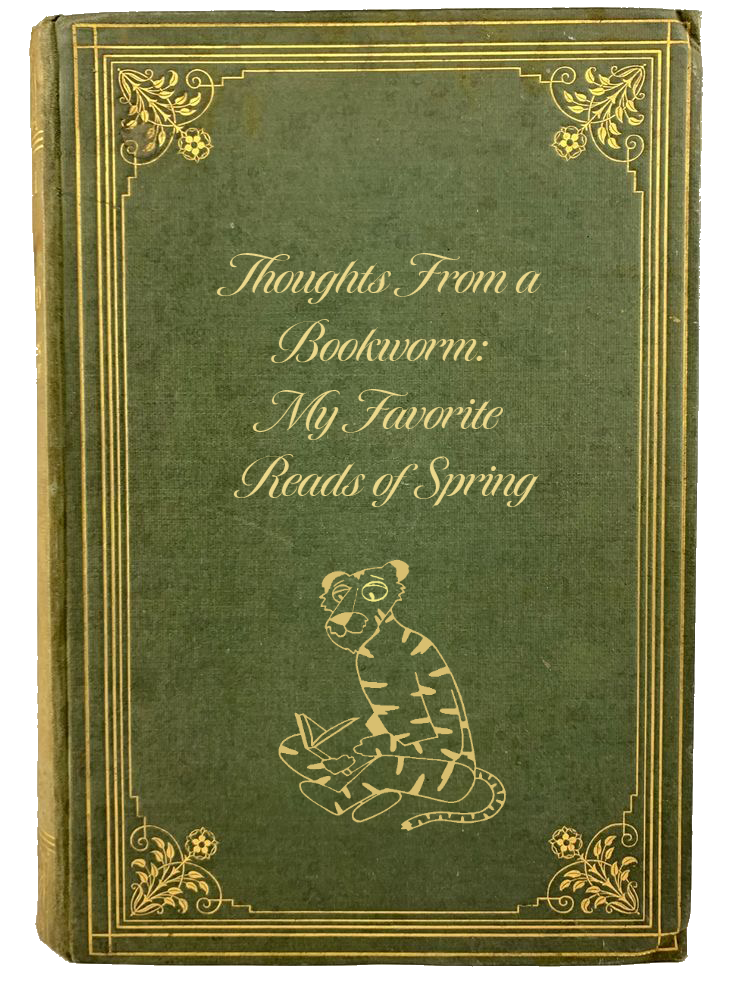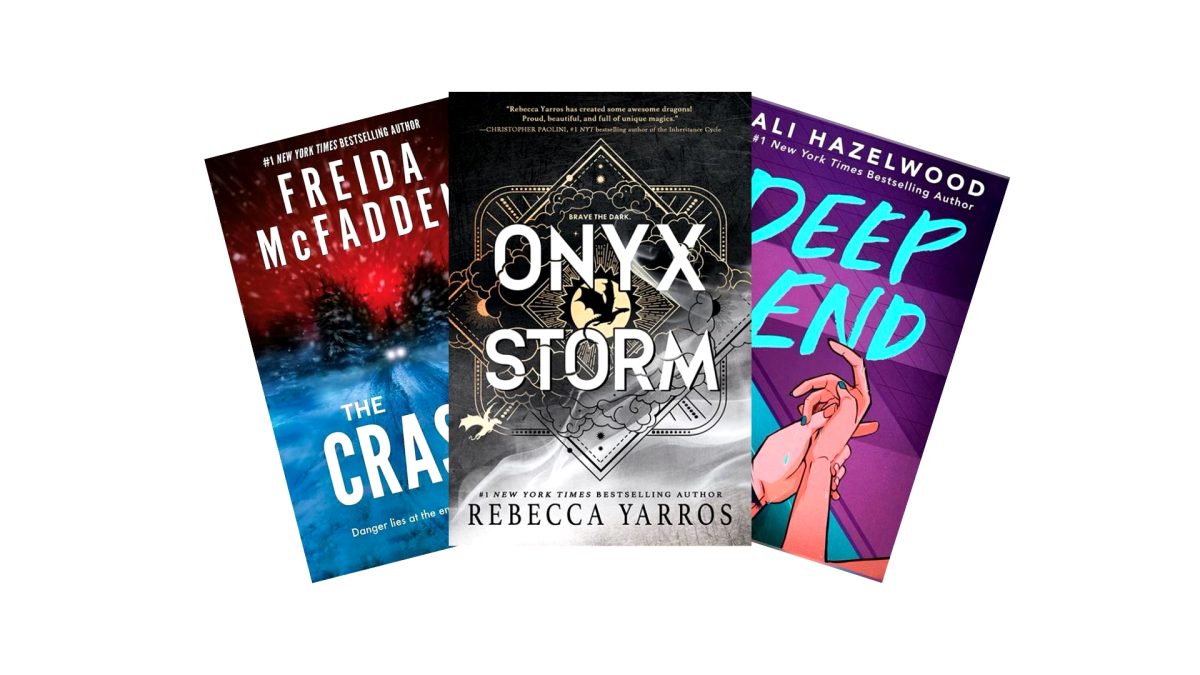If you like “Anti-Hero,” read “Wuthering Heights” by Emily Brontë.
Although Emily Brontë constructed Heathcliff’s compelling character in the 1840s, the main character of “Wuthering Heights” encapsulates Taylor Swift’s 2022 song “Anti-Hero.” After being denied the chance to marry Catherine Earnshaw because of his social status and having to witness her marry another man, Heathcliff dedicates the rest of his life to seeking revenge on those who have wronged him.
Fulfilling the gothic genre, after Cathy’s tragic death, Heathcliff is haunted by Cathy’s memory, aligning perfectly with the image of Swift’s narrator waking up “screaming from dreaming” and her depression causing her to work “the graveyard shift.” This narrative parallels the novel as Heathcliff’s mania and depression drive him to literally lie in Cathy’s grave.
Feeling as if his life has lost “all its meaning” in the aftermath of Cathy’s death, Heathcliff takes on a toxic, controlling role in both his and Cathy’s children’s lives. His love and grief for Cathy propels him into acting like the “monster on the hill” Swift describes in her song.
Heathcliff is “the problem” and “everybody agrees,” but with the pain and suffering he faces in his childhood and his hopeless love for Cathy Earnshaw, the reader cannot help but sympathize with Brontë’s gothic antihero. Swift sings, “It must be exhausting always rooting for the antihero,” and the depression, self-loathing and scheming witnessed within her hit song align perfectly with Heathcliff’s character.
If you like “22,” read “Everything I Know About Love” by Dolly Alderton.
Top hit “22” captures that in young adulthood, one can feel “happy, free, confused and lonely at the same time” and “in the best way.” Dolly Alderton’s memoir echoes these feelings of growing up and navigates the emotions of friendships, jobs, love and loss.
Similar to the “22,” Alderton conveys how early adulthood is filled with uncertainty and is equally terrifying and hopeful while exploring themes of friendship, partying and falling in and out of love, present in Swift’s hit song and in young women’s lives. “Everything I Know About Love” is filled with wit and emotion, along with the universality of the feelings and experiences discussed. Alderman’s story connects with female readers, no matter how long it has been since they were “22.”
If you like “this is me trying,” read “The Bell Jar” by Sylvia Plath.
Swift’s “this is me trying” explores depression and one’s failure to meet their potential; the same feelings echoed in Plath’s semi-autobiographical novel “The Bell Jar.” Plath’s novel takes place in the 1950s and follows Esther Greenwood’s experience as an honor student at her women’s college, her internship for a women’s magazine and, eventually, her treatment in a mental hospital.
Esther feels a lack of satisfaction with herself, a cynical difference from the other young women in her life and a deep sense of hopelessness for her future. As she falls deeper into her depression and eventually ends up in an asylum, she echoes Swift’s sentiment that she “fell behind all (her) classmates and ended up here.”
Despite Esther’s apparent genius and potential for writing, editing and academia, she feels paralyzed by her future, and eventually, her depression turns to suicidal ideation. As Swift sings in her lyrical narrative, Esther feels that “all of my cages were mental. So I got wasted like all my potential.” Like Swift’s “this is me trying”, Plath’s novel explores dark, emotional themes. However, her genius narrative will disturb and humor simultaneously, ensuring it will stick with the reader long after finishing the final page.
If you like “tolerate it,” read “Rebecca” by Daphne du Maurier.
One of Swift’s most vulnerable, depressing songs, “tolerate it,” is based on Daphne du Maurier’s 1938 novel “Rebecca.” “Rebecca” follows a young, unnamed narrator as she marries a wealthy widower who (as Swift wrote) is “so much older and wiser” than her.
The narrator’s husband, Maxim de Winter, is neither affectionate nor emotionally available to her as she tries to navigate her new role as mistress of his estate. She quickly realizes that Maxim and the household staff are haunted by the memory of Maxim’s widow, Rebecca. The narrator feels confused and anxious by her lack of information regarding Rebecca but tries to take Maxim’s “indiscretions all in good fun.”
In her begging “for the footnotes of the story of (Maxim’s) life” and his marriage with Rebecca and her early death, the narrator makes Maxim her “temple, her mural, her sky” despite his allusiveness towards her. As Maxim merely tolerates his young wife’s love, the narrator becomes controlled by what she believes to have been the relationship between Maxim and Rebecca, creating a gothic, haunting relationship between the young woman and the deceased, mysterious Rebecca. Swift perfectly encapsulates the narrator’s experience in the path of her older husband’s coldness, mysteriousness and neglect in “tolerate it.”
If you like “But Daddy I Love Him,” read “Good Girl Complex” by Elle Kennedy.
When I listen to Swift’s “But Daddy I Love Him,” I am reminded of Mackenzie Cabot and Cooper Hartley’s relationship in “The Good Girl Complex.” Elle Kennedy’s romance novel follows Mackenzie, a wealthy college student weighed down by her parents’ strict expectations. Swift’s lyrics “I just learned these people only raise you to cage you” and “dutiful daughter all my plans were laid” precisely reflect her life.
While attending college, Mackenzie meets the rebellious Cooper, a town local who holds a deep disdain for all the trust fund students he sees cycle through his hometown and whose character perfectly encapsulates the lyrics “he was chaos, he was revelry” from Swift’s song.
Eventually, sparks fly when the two meet and their intense banter slowly turns into admiration. Throughout the novel, Mackenzie is constantly torn between the love and acceptance she feels from Cooper and returning to the strict-rule-following “good girl” persona she has always held.
However, her feelings for Cooper inspire her to deny her instinct to live for her parent’s wishes for the first time in her life, and as Swift sings, she will not be “coming to (her) senses,” and even though her parents think she is being crazy, Cooper is the “one (she wants).” Similar to the narrator in Swift’s “But Daddy I Love Him,” in Elle Kennedy’s novel, Mackenzie learns that her “good name” is hers “alone to disgrace.”











